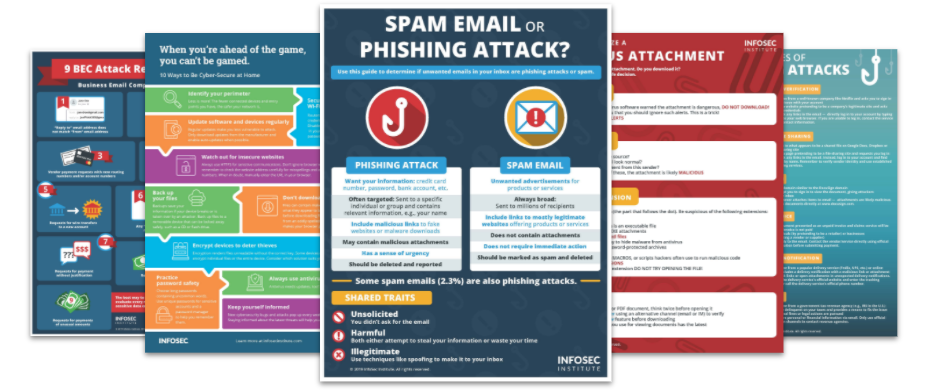Cybersecurity Weekly: Zoom-themed phish, Joker malware resurgence, Citrix flaws
A new Office 365 phishing scam uses fake Zoom suspension alerts. Joker malware apps bypass Google's security to spread via Play Store again. Citrix issues critical patches for 11 new flaws. All this, and more, in this week’s edition of Cybersecurity Weekly.
Top Security Awareness Posters

1. Office 365 phishing scam uses fake Zoom suspension alerts
Microsoft Office 365 users are targeted by a new phishing campaign using fake Zoom notifications to warn those who work in corporate environments that their Zoom accounts have been suspended. So far, the phishing campaign impersonating automated Zoom account suspension alerts has landed in over 50,000 mailboxes. (See our walkthrough on Zoom phishing attacks.)
2. Joker malware apps bypass Google's security to spread via Play Store again
Last week, cybersecurity researchers found another trick to bypass Google's Play Store protections. The new strategy aims to obfuscate the malicious DEX executable inside the application as Base64-encoded strings, which are then decoded and loaded on the compromised device.
3. Citrix issues critical patches for 11 new flaws
Last week, Citrix issued new security patches for as many as 11 security flaws that affect its Citrix Application Delivery Controller, Gateway and SD-WAN WAN Optimization edition networking products. Successful exploitation of these critical flaws could let unauthenticated attackers perform code injection and information disclosure.
4. Conti ransomware shows signs of being Ryuk's successor
The Conti ransomware is an up-and-coming threat targeting corporate networks with new features that allow it to perform quicker and more targeted attacks. There are indications that this ransomware shares the same malware code as Ryuk, who has slowly been fading away, while Conti's distribution is increasing.
5. Huge DDoS attack launched against Cloudflare in late June
Cloudflare revealed last week that on June 21 it detected and mitigated a DDoS attack that peaked at 754 million packets-per-second. According to researchers, that peak was part of a four-day attack from June 18-21 that saw traffic from more than 316,000 different IP addresses directed at a single Cloudflare address.
6. Zoom zero-day allows RCE, patch on the way
A newly discovered bug in the Zoom client for Windows could allow remote code execution, according to cybersecurity researchers who disclosed the existence of the flaw on Thursday after pioneering a proof-of-concept exploit for it. The issue was later confirmed for news outlets by a Zoom spokesperson.
7. Popular home routers plagued by critical security flaws
A recent study of more than 100 consumer-grade routers has found that nearly all tested routers are affected by scores of unpatched and often severe security flaws. These vulnerabilities leave the devices at risk of cyberattacks. Even if the routers got recent updates, many of these known vulnerabilities were not fixed.
8. Accounts of 300,000 Nintendo Switch users hacked
Nintendo announced the breach in April, but it doubled the number of affected accounts in an update this week as a result of continuing the investigation. The issue applies specifically to anyone who connected their old Nintendo 3DS and Wii U Nintendo Network ID to the Switch.
9. Evilnum group targets fintech companies in Europe
For the past two years, a threat group tracked as Evilnum has been observed targeting financial technology companies. The adversary became known for the use of Evilnum malware, which was initially identified in 2018, but has expanded its toolset with malicious programs purchased from a malware-as-a-service provider named Golden Chickens.
Phishing simulations & training
![]()
10. Fed shares insight on how to combat synthetic identity fraud
The United States Federal Reserve published advice for financial institutions located in the U.S. on how to mitigate risks of synthetic identity payments fraud. Citing an analysis by the Auriemma Group, the Fed noted that synthetic identity fraud cost U.S. lenders around $6 billion and was responsible for 20% of credit losses in 2016.





